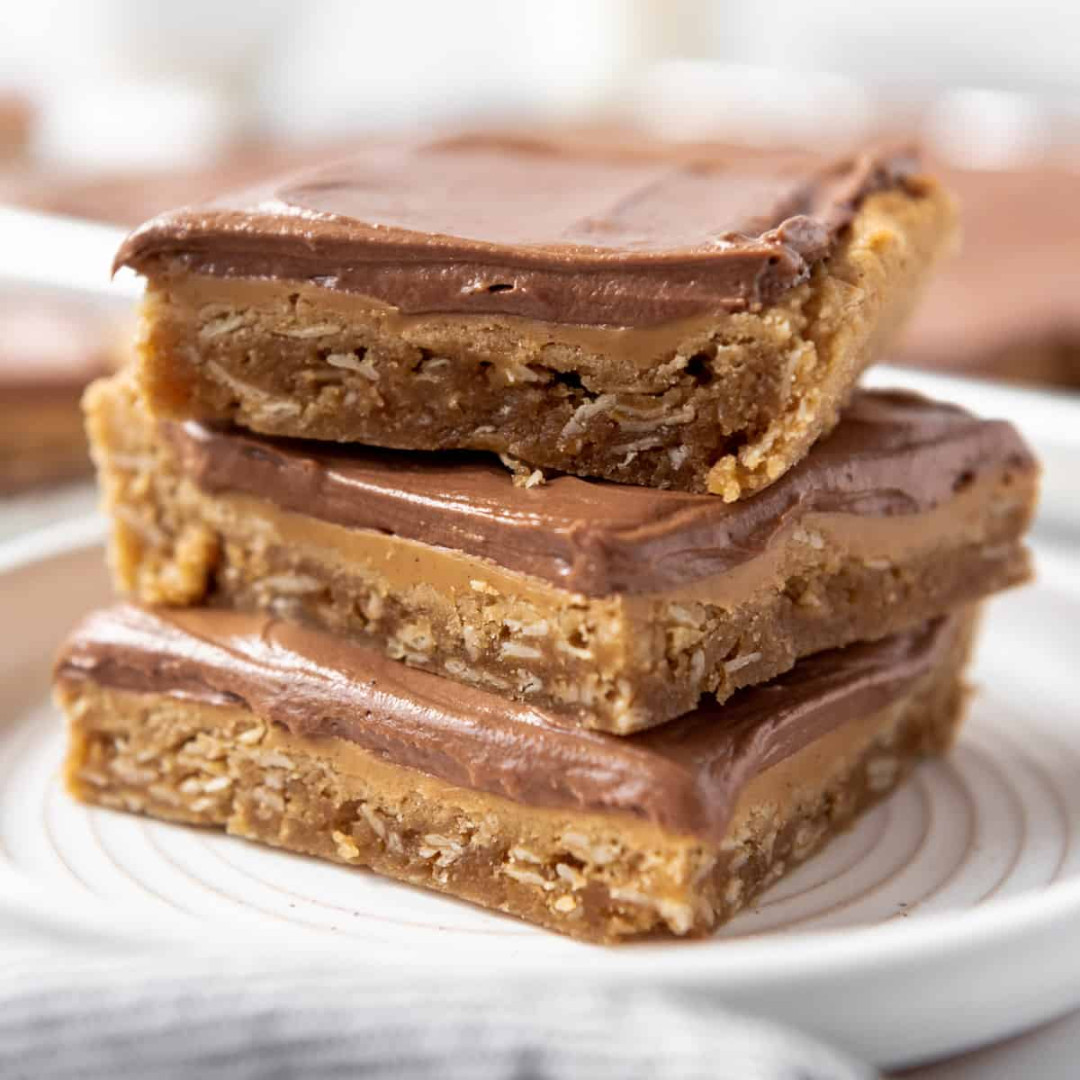lunch lady peanut butter bars, a beloved classic, have always held a special place in our hearts. But what if we could elevate this nostalgic treat, infusing it with flavors from around the world? Let’s embark on a culinary journey, transforming this simple dessert into a masterpiece that celebrates diversity and delights the senses.
Ingredients:
1 cup unsalted butter, softened

Image Source: houseofnasheats.com
Preparation Process:
1. Preheat and Prepare: Begin by preheating your oven to 350°F (175°C). Grease and flour a 9×13 inch baking pan to ensure easy release.
2. Cream Together: In a large bowl, cream together the softened butter and granulated sugar until light and fluffy. Beat in the eggs one at a time, followed by the vanilla extract.
3. Combine Dry Ingredients: In a separate bowl, whisk together the flour, baking powder, and salt. Gradually add the dry ingredients to the wet ingredients, mixing until just combined.
4. Layer the Flavors: Spread half of the batter evenly into the prepared baking pan. Dollop the peanut butter over the batter, creating a swirled pattern. Top with the raspberry jam, spreading it evenly. Cover the jam with the remaining batter.
5. Bake to Perfection: Place the pan in the preheated oven and bake for 25-30 minutes, or until a toothpick inserted into the center comes out clean.
6. Cool and Cut: Let the bars cool completely in the pan before cutting into squares.
Total Time: Approximately 45 minutes
Serving Ideas:
Elevate the Classic: Serve the PB&J Revolution with a scoop of vanilla ice cream or a drizzle of chocolate sauce.
A Cultural Fusion
This recipe is a testament to the power of culinary fusion. The peanut butter, a staple in American cuisine, is paired with the sweet and tangy raspberry jam, a nod to European influences. The baking techniques, rooted in Western traditions, are combined with the global appeal of peanut butter, creating a truly international dessert.
As we savor each bite of this PB&J Revolution, we celebrate the rich tapestry of cultures that have shaped our culinary landscape. It’s a reminder that food is more than just sustenance; it’s a vehicle for connection, creativity, and cross-cultural understanding.